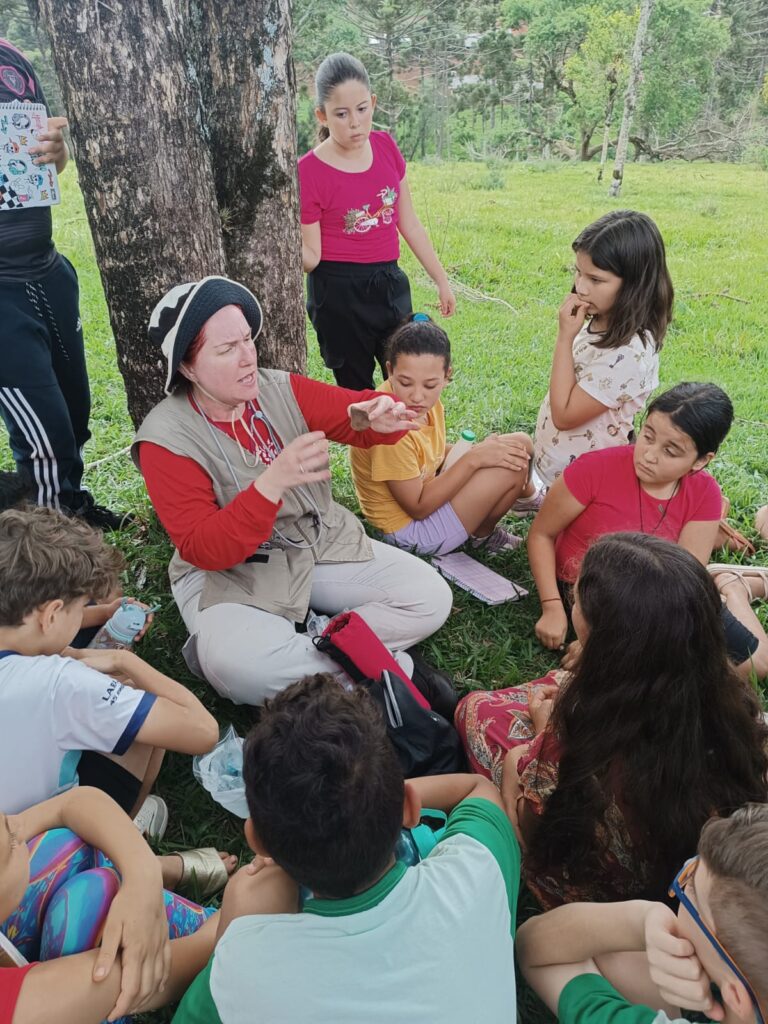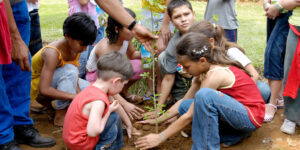It aims at the extraversion of knowledge about the Historical and Cultural Heritage of the region in the Brazilian archaeological panorama. It consists of all formal and non-formal educational processes that focus on cultural heritage, socially appropriate as a resource for the socio-historical understanding of cultural references in all their manifestations, in order to collaborate for their recognition, their appreciation and preservation. It is also considered that educational processes must excel in the collective and democratic construction of knowledge, through the effective participation of communities that hold and produce cultural references, where different notions of cultural heritage coexist.
To meet its objectives, the program addresses issues such as education for citizenship, appreciation of cultural identity, preservation of heritage, training of multiplying agents and dissemination of scientific research. The methodology used seeks to awaken in the community the interest in knowing and understanding its identity, history and culture.
| Stage Description | Stage Description |
| Bibliographic Data Search | Prior survey of information on the history and cultural heritage of the place where the project will be built. |
| Cultural Historical Survey | Field stage comprising interviews with former residents, research and analysis of books and photographs, visits to places considered as material and immaterial cultural heritage by the community |
| Didactic Folder | Delivery of material to publicize the Program in order to establish a first contact with public agencies, schools and cultural institutions. It presents the concept of archeology and photographic images of the archaeological heritage already found in Paraná. |
| Asset Education Course | Developed from the information collected in the previous stages and carried out through dynamics, interaction activities and workshops, it aims to train the community and school teachers in the municipalities affected by the works to recognize and value their cultural assets. |
| Course at construction sites | Activity developed to introduce the theme to construction workers, with visualization of archaeological objects already found. It aims to enable the recognition of objects and archaeological remains found in the works and to instruct as to the procedures to be taken in these cases. |
For Copel Distribuição’s projects, sessions of the Integrated Heritage Education Programs are held, whose activities are carried out for various audiences, in accordance with the Integrated Heritage Education Program presented to the National Institute of Historical and Artistic Heritage (IPHAN), among which the following stand out:
- workers responsible for the construction of the projects;
- students and teachers from public and private schools in the municipalities affected by the projects;
- the general community and residents living in the areas directly and indirectly influenced by the projects;
- professionals who are part of Cultural Centers and Museum Institutions; and,
- managers and inspectors of Copel Distribuição’s energy projects.
Every year, Copel Distribuição holds a Training event on Cultural Heritage in environmental licensing for the internal public, composed of managers and inspectors from the Engineering Department and professionals responsible for the construction of the Distributor’s projects. The event aims to provide knowledge about Cultural Heritage in the context of environmental licensing of energy projects, highlighting the importance of knowing the existing heritage so that it can be preserved, in addition to instructing the responsible professionals working on the works about the necessary procedures to be taken in the event of the discovery of archaeological assets during the installation of the projects.







